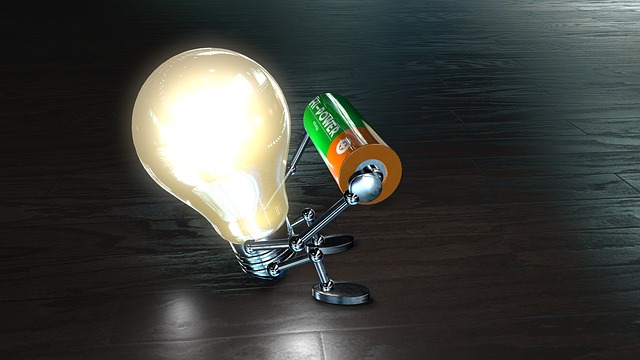Should You Run Down Lithium Battery?
Oct 16, 2019 Pageview:2299
There is no doubt that lithium batteries have become the first option as power sources for portable devices and electronics. As compared to other batteries available on the market, they have a remarkably longer lifespan. They are primary batteries that use metallic lithium as an anode. They are also known as lithium-metal batteries. There are a number of reasons why they are different from other batteries and commonly used in a wide range of consumer applications.
Just keep in mind that disposable primary lithium batteries are different from secondary lithium-ion batteries, which are a rechargeable type of batteries.
If you’re curious to know more about lithium battery, then you’ve landed in the right place. Here is everything you can know about these batteries, like should you run down it, its advantages and tips for their well-being. Let’s begin…
What Are The Advantages Of Lithium Batteries?
There is no secret that lithium batteries have revolutionized the portable devices market, such as laptops, computers, and smartphones. In fact, their usage is also seen in electric vehicles. The lithium-ion batteries have become a popular choice in the solar and EV market. In short, these batteries are used in various portable consumer devices and all because of the advantages the lithium battery has -
· Highly Energetic
Lithium battery offers stable, reliable and enduring power. Their energy density is quite higher and it clearly means that they have a high capacity for power. Moreover, this high energy density allows its usage in applications that demand high power requirements, for instance, smartphones and laptops & computers.
· Weight and Size
As compared to other batteries, lithium batteries are smaller and lightweight. This is one of the biggest advantages, which makes them appropriate and ideal choice for various portable consumer electronic devices.
· Low Discharge and Fast Charge Time
Lithium batteries recharge quite faster as compared to other ones like lead-acid batteries. Also, their rate of self-discharge is quite lower than of other rechargeable batteries. It means that they feature lower shelf lives. According to several studies, it is found that they have a lifespan of up to 10 years, on an average basis. Most importantly, they can deal with hundreds of charge/discharge cycles.
· Low Maintenance
Lithium batteries don’t need much maintenance to make sure they work best. Few other batteries like nickel-cadmium cells need discharge to avoid the memory effect.
These are the advantages of using a lithium battery. Considering its advantages, one can now believe that why these batteries have gained huge popularity in the world of battery.
Are You Killing Your Lithium Batteries?
Lithium batteries are quite expensive and that’s why it makes sense that you would want to make sure that your battery lives for many next years to come. If you want to understand what you can do to boost the life of your lithium battery, you need to first know what makes them die. Well, the shortest answer is that during every charge and discharge cycle, a quite small parasitic reaction occurs between the electrodes and electrolyte inside a battery cell, developing up with time and minimizing the amount of power that cell can store as well as output.
There are majorly two main factors that cause the inevitable death of your lithium battery and those factors are -
· High temperature
· Increased time spent at high charge level or high voltages.
Both of these factors contribute to the quick death of your lithium batteries. According to studies, it is found that high temperatures boost the parasitic reactions that happen in the electrolyte of the battery. On the other side, high voltages cause extra performance for a few cycles and then, a crash in the battery’s performance and quick deterioration of the cell.
The good news is that both factors can be tackled to make the batteries last for long. So, let’s now know what you can do to keep the battery healthy.
Lithium: How Do You Keep Your lithium battery Healthy?
Lithium batteries are currently the most commonly used for a wide range of applications like smartphones, digital cameras, and many other portable devices. Understanding how to promote the health of the lithium battery doesn’t help you to prolong the battery life, but protect your application from positional damage too.
Here are the tips you can use to keep the battery healthy-
· Use a suitable charger
Most of us take good care of their devices, but generally, ignore the consequences of using low-quality chargers on their lithium batteries. When picking a charger, make sure to buy an original one. If that’s not available, then go for an appropriate charger that comes with an overcharge protection feature. Using a low-quality battery charger can cause premature battery failure, fire or explosion.
· Avoid overcharging
Overcharging using an appropriate charger may let the interior of the battery rise to a quite high temperature, and that is bad for your battery and charger too. Therefore, it is highly recommended that you should avoid overcharging. Otherwise, it will turn the battery into a bomb that could harm you and battery too.
· Avoid using it in low or high-temperature environments
Lithium batteries feature optimal working & storage temperatures. If you use them in extreme temperature environments, this could negatively impact the battery use time and cycles.
· Avoid metal contacts
All batteries contact must be kept clean for great performance. Don’t ever let the contact of the battery with metal objects, for instance, keys. This could result in a short circuit and damaging the battery and worse could happen is the fire or explosion.
· Avoid long periods without recharging or using
If the battery will be left unused for a long duration, recharge them and then, store the device in order to avoid the battery damage. You may have to take the device out of storage for charging it again after a few months.
Keeping lithium battery healthy is easy and all you need to do is little attention and care while using it. We hope that you got answers to the question about lithium batteries.
- Prev Article: Why Wont My LIPO Battery Charge?
- Next Article: Lithium-ion Battery Runtime Calculator
Leave Message
Hottest Categories
-
Hottest Industry News
-
Latest Industry News











